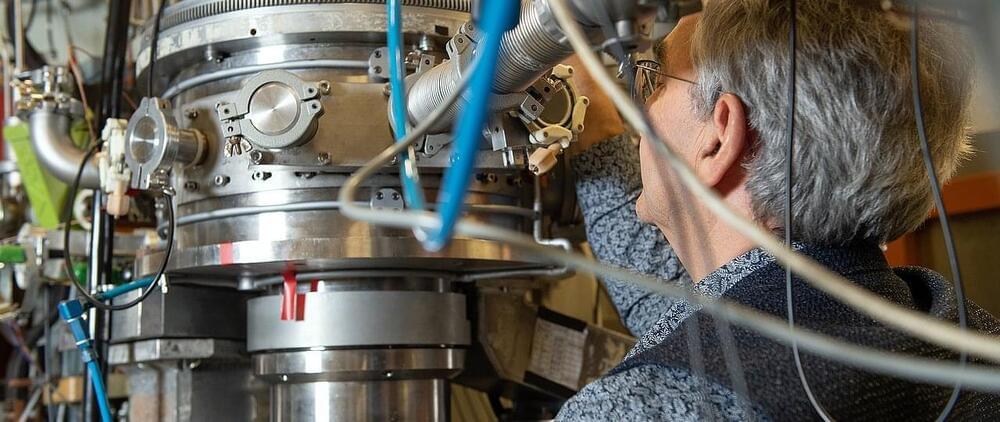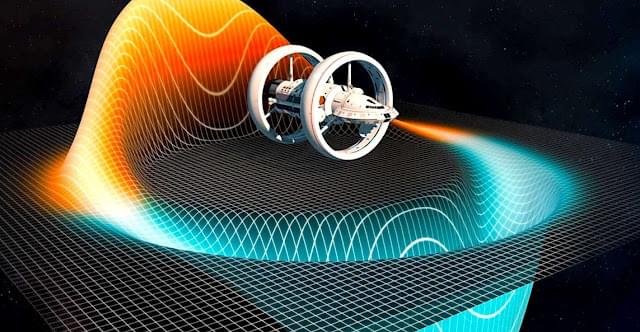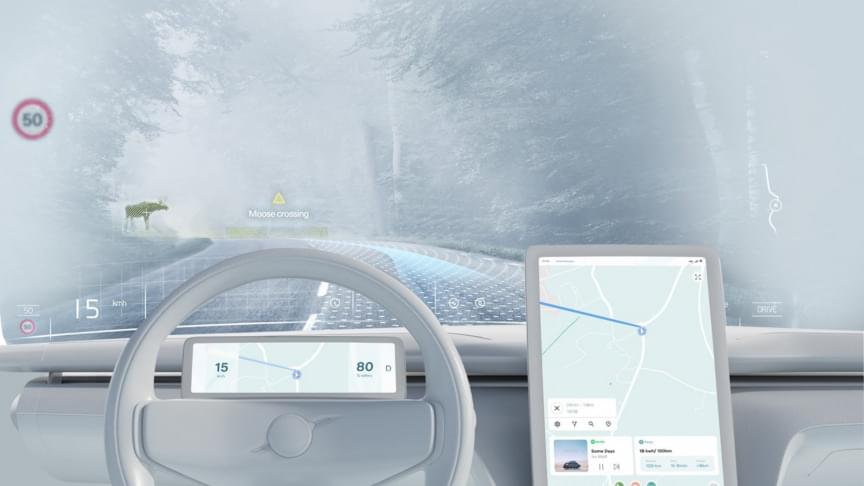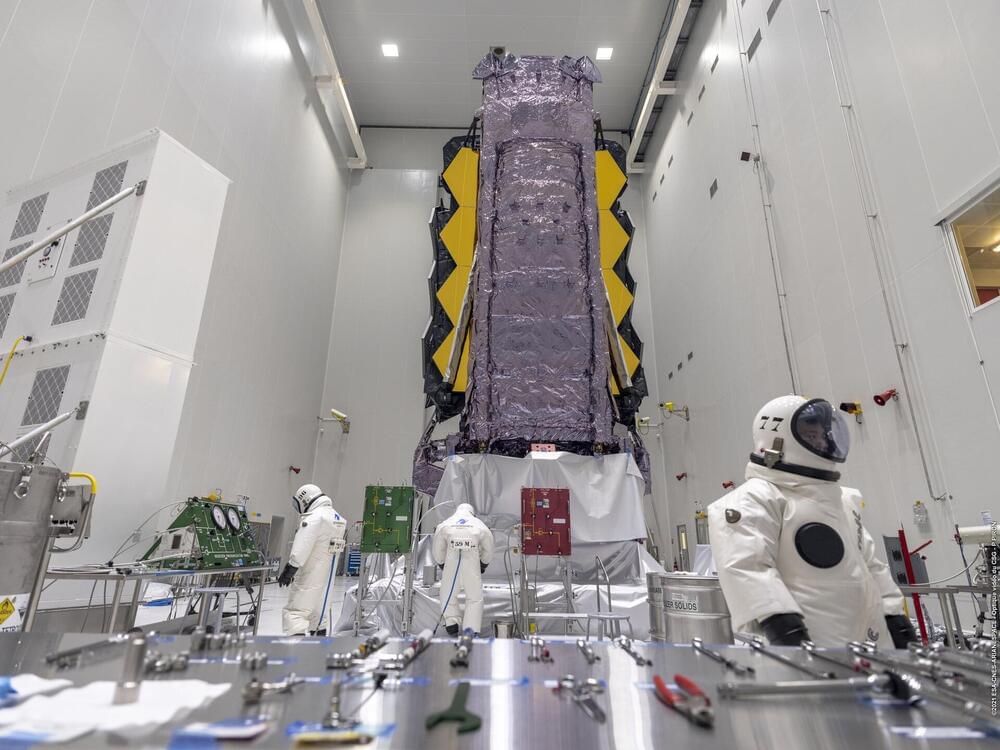Dec 11, 2021
Experiment finds evidence for a long-sought particle comprising four neutrons
Posted by Genevieve Klien in categories: particle physics, space
While all atomic nuclei except hydrogen are composed of protons and neutrons, physicists have been searching for a particle consisting of two, three or four neutrons for over half a century. Experiments by a team of physicists of the Technical University of Munich (TUM) at the accelerator laboratory on the Garching research campus now indicate that a particle comprising four bound neutrons may well exist.
While nuclear physicists agree that there are no systems in the universe made of only protons, they have been searching for particles comprising two, three or four neutrons for more than 50 years.
Should such a particle exist, parts of the theory of the strong interaction would need to be rethought. In addition, studying these particles in more detail could help us better understand the properties of neutron stars.


















